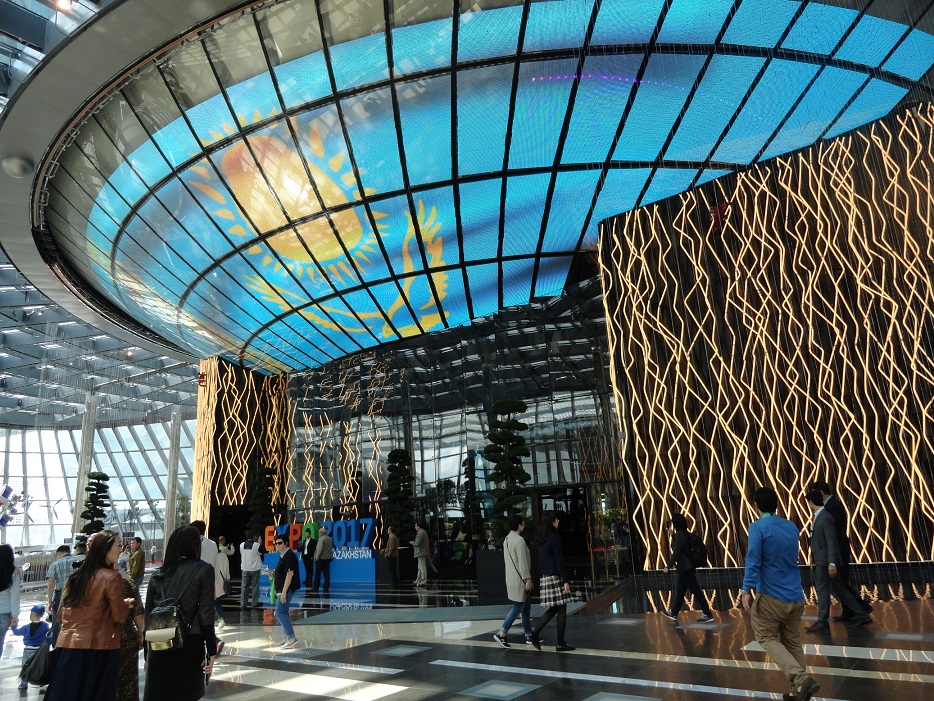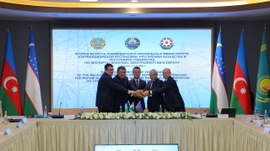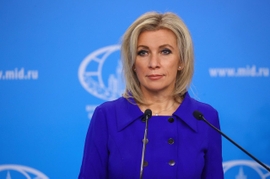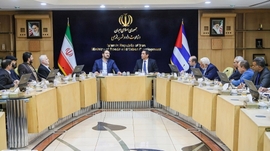While construction workers and engineers are busy dismantling some of the structures that had been built for the 2017 world’s fair held in Astana, Kazakhstan, others are looking to leverage the new and innovative technologies that were showcased in them over the summer.
The three months-long world’s fair, which ran from June 10 – September 10 and was better known as “Expo 2017,” showcased hundreds of technologies relating to energy, some of which will be used to help boost Kazakhstan’s own sector.
"It is very important to introduce the leading foreign technologies presented at EXPO into the economy of our country,” Kazakhstan’s Deputy Energy Minister Magzum Mirzagaliyev said at a press conference on September 25.
“The ministry is currently working on this issue. For example, we created an expert working group of more than 40 leading experts of national companies such as Kazmunaigaz and Kaztransgaz,” he added, referring to the state-owned oil and gas company of Kazakhstan, and the largest gas supplying company in the country, respectively.
Members of the working group had visited the pavilions of more than 100 countries and over 20 international organizations during the expo, to get acquainted with the latest and greatest “green,” or clean energy technologies. As a result, the experts drew up a list of 105 scientific know-hows, including those relating to oil and gas, coal and nuclear industries, electricity, energy saving and renewable energy sources, as well as ecology, including waste management, water treatment and air quality control.
Leaders in Astana believe that, once applied, these technologies will help to strengthen and diversify the country’s energy sector as well as make its economy more self-reliant.
Kazakhstan’s oil and gas industries remain two main sources of revenue for the state budget, as Kazakhstan sits atop one of the world’s largest reserves of fossil fuels. The country’s share in the world’s explored reserves of hydrocarbons amounts to 3.2 percent of oil, or about five billion tons, and 1.5 percent of gas, measuring about two trillion cubic meters.
Technologies that can help diversify Kazakhstan’s energy sector include Germany's "Smart Greed" technology, which helps electricity systems reduce losses during the transmission of electricity over long distances. Other innovations include harnessing the power of geothermal sources that capture heat from soil and groundwater.
Kazakhstan’s experts are pinning high hopes on Belarus’ energy-saving technology known as “Turbosphere,” which captures the excess pressure emitted from natural gas.
Organizations and businesses in the South Kazakhstan Region have already agreed to use 27 different technologies put on display during the expo in local businesses. The regional Shymkent Mai Company, engaged in oilseeds production and their recycling, is set to launch a catalytic de-aeration installation. Produced by Belarus, this device removed excess oxygen from water, which can worsen the quality of some food products.
Other projects that are planned for the region include a mobile complex for wastewater treatment, and a solar battery management system, both technologies that come from neighboring Russia.
Kazakhstan’s western Mangistau region, which lies along the eastern shore of the Caspian Sea, will also be using some of the technologies showcased at Expo 2017.
“The theme of Expo 2017, Energy of the Future, allowed us to take a fresh look at the problem of ecology, which is an urgent issue of our region,” said Yarmaly Tugzhanov, the region’s governor, on September 22 while addressing a press conference held at the Ministry of Information and Communications.
Mangistau, an industrial region that produces 25 percent of Kazakhstan’s oil, will launch a gas turbine power station at the Kalamkas oil field. It is expected to yield energy savings totaling about 8.3 billion tenge ($24.3 million).







 Iran is moving to fortify its eastern border with Afghanistan in a bid to fight illegal migration and drug trafficking, along with enhancing security.
Iran is moving to fortify its eastern border with Afghanistan in a bid to fight illegal migration and drug trafficking, along with enhancing security.
 The Iranian and Cuban transport ministers have discussed expanding maritime and air transportation cooperation.
The Iranian and Cuban transport ministers have discussed expanding maritime and air transportation cooperation.
 U.S. Secretary of State Antony Blinken reiterated Washington’s unwavering support for the ongoing peace process between Azerbaijan and Armenia in a...
U.S. Secretary of State Antony Blinken reiterated Washington’s unwavering support for the ongoing peace process between Azerbaijan and Armenia in a...



